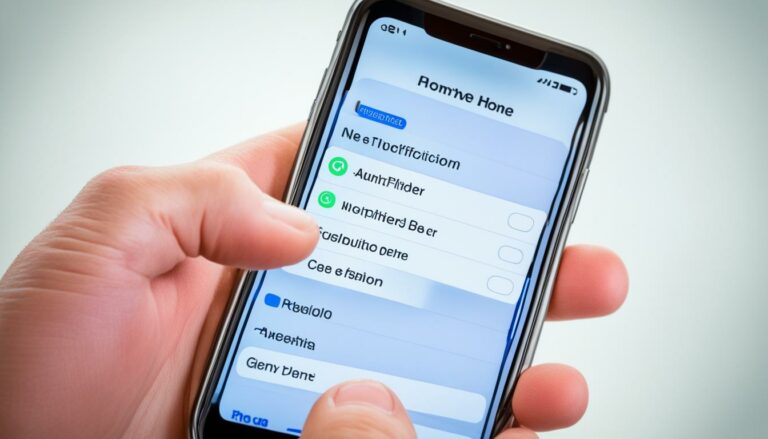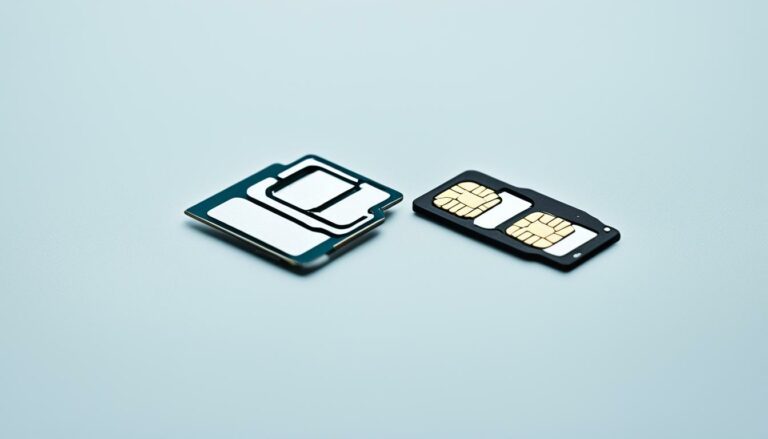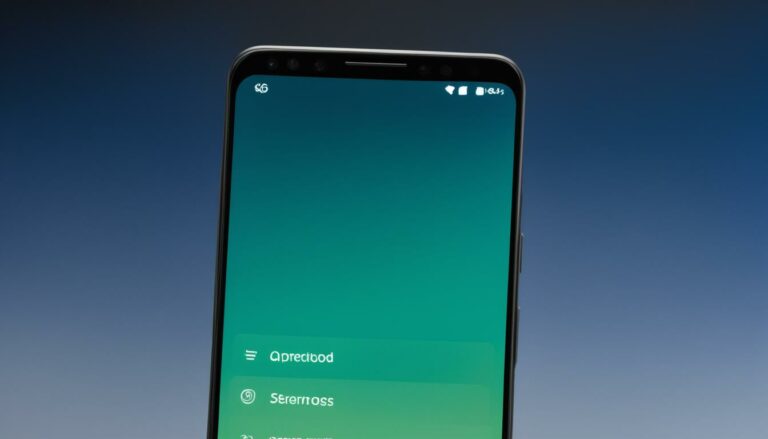Why Is My Number Not Eligible for Porting? Explained
Originally posted on May 21, 2024 @ 10:36 pm
Last year, over 55 million people moved their phone numbers between carriers in the United States. However, some people find it hard to port their numbers. The rules for number portability can be tricky and they often change between phone companies.
There are many reasons why your number may not be portable. Carriers might say no if your account is not active or has an outstanding balance. Also, the type of service you have, like prepaid versus postpaid, can also affect porting. It’s important to know these rules and limitations for number portability when you want to switch to a new carrier.
Key Takeaways
- Carriers often have restrictions on which phone numbers can be ported, such as requiring the account to be active and in good standing.
- The ownership and eligibility criteria for a phone number can impact porting, including the type of service (prepaid vs. postpaid).
- Unpaid balances or a history of service termination can make a number ineligible for porting.
- Understanding the specific number portability rules and porting eligibility criteria is key when trying to transfer your phone number.
- The porting process guidelines and phone number transfer policies vary across different carriers.
Understanding Number Portability Rules
When you want to switch your phone number to a new carrier, knowing the rules is key. Carriers have their own specific rules. These rules can affect if you can move your number or not.
Carrier Restrictions on Number Porting
The carrier’s restrictions are a big deal. Some only let you move your number if your account is good. This means you have no unpaid bills or services set to end.
To make sure you can move your number, keep your account in good shape.
Number Ownership and Eligibility Criteria
Who owns the number and how they’ve used it matters too. Whether it’s a prepaid or postpaid plan, and if it’s for personal or business use, make a difference. As does how long you’ve had the number.

Understanding the carrier’s rules and your number’s situation is crucial. It helps you go through the process with fewer issues. This way, shifting your number to a new carrier can be easier.
why is my number not eligible for porting
Trying to change to a new carrier may not always be smooth. If you owe money or had your service stopped, you may not be able to port your number. This is a common reason for ineligibility.
Unpaid Balances and Service Termination
Before you can switch, carriers want to see a clean account. They won’t let you take your number if you’ve not paid your bills or if they’ve cut off your service. Thus, it’s essential to resolve any financial issues first.
Prepaid or Non-Eligible Service Types
What kind of service you use can also matter. Some, like prepaid or unconventional plans, might not allow number porting. Each carrier has its regulations. These might block you from porting your number.
It’s key to know why you may not qualify for porting. When you understand the issues, you can work to fix them. This gives you a better shot at moving your number to your new carrier.

Conclusion
It’s important to know why you might not be able to take your phone number with you. Things like not paying your bill, being stopped from using the service, and the kind of service you have matter. If you know the number portability rules, it’ll be easier to switch your number to a new carrier without a hassle.
Keep up to date with the mobile number porting guidelines your current and future phone companies have. This info is key to avoiding problems and having a straightforward process. Knowing what makes you eligible to keep your number will make sure you don’t run into any surprises.
Learning the number portability rules and what’s needed from you helps a lot. It lets you make smart choices and smoothly go through the steps to switch carriers. Being well-informed means you’re more likely to keep using your same number without trouble. And that makes changing carriers much easier.
FAQ
Why is my number not eligible for porting?
Your phone number might not be ready to move for a few reasons. Carriers have rules on which numbers can switch. This is often about account activity and if the account owes anything.
If your number doesn’t fit the rules or is from a service that can’t move numbers, you’ll have trouble switching.
What are the carrier restrictions on number porting?
Carriers set rules to move phone numbers. Often, your account must be clear of debts and issues. The type of service you have, and how long you’ve had the number, also matters.
They look at if it’s a business or personal number too. All these factors decide if you can move your number or not.
How does the number ownership and eligibility criteria affect porting?
Who owns the number and how it’s been used can decide if it can be moved. The type of service, how long you’ve used the number, and if it’s personal or for business influence this.
What are the reasons for unpaid balances and service termination issues?
Owing money or having service trouble in the past can stop you from moving your number. Carriers need you to have a clean account before you switch.
How do prepaid or non-eligible service types affect porting?
Some service plans can’t move numbers easily. Prepaid and other non-standard plans have special rules. These rules might make it hard to switch providers with the same number.
Source Links
- https://www.sandiegouniontribune.com/news/nation-world/story/2024-05-16/ap-week-in-pictures-latin-america-and-caribbean
- https://www.longandfoster.com/homes-for-sale/200-Adams-Road-Port-Deposit-MD-21904-370711031
- https://www.newsnationnow.com/world/international-headlines/ap-uss-ronald-reagan-leaves-its-japan-home-port-after-nearly-9-years/








